274 products
- White Wine
- Chenin Blanc
- Sustainable
- Dry
- Medium Bodied
- 750ml
- 12.97% alc./vol
About the Winery
Pearce Family Wines

In the early 2000's Nicholas Pearce was exposed to the garagiste movement in Bordeaux and was particularly inspired by négociants like Jean Luc Thunevin (Saint Emilion), James Sichel (Margaux) and Nicolas Potel (Beaune) from Burgundy.
After returning home to Ontario and starting his own wine company, he has had a hand in making 10+ wines in two hemispheres, 3 countries and 5 different appellations since the 2013 vintage.
Pearce Predhomme

Pearce Predhomme is a collaboration of like-minded individuals from around the globe. Founded with a mission to build and import wines from our favourite appellations while offering an unequaled value/quality ratio for the sommeliers & wine buyers in Ontario. This is a project between Toronto Sommelier and entrepreneur Will Predhomme and Ontario wine importer Nicholas Pearce. They have partnered with Radford Dale in South Africa and NorthWest Wine Co. in Oregon to create these special cuvées.
- Red Wine
- Grenache, Mourvèdre / Monastrell, Samso / Carignan, Syrah
- Sustainable, Vegan-Friendly
- Dry
- Medium Bodied
- 750ml
- 14.5% alc./vol
About the Winery
Domaine Andre Aubert
At the very heart of the Rhône Valley, at the northerly tip of the Southern Rhône, lie the vineyards of Grignan-Les-Adhémar. The chances are you haven’t heard the name before, few people have, but the wines are worth seeking out. It’s not a new wine region – vines have been planted here since around 500BC but it is a new name (formerly known as Côteaux-du-Tricastin). Domaine André Aubert, has been formed over decades and today comprises of more than 280 hectares spread from north to south of the prestigious Southern Rhone Valley on the appellations Côtes du Rhône, Côtes du Rhône villages, Visan, and Grignan-les-Adhémar.
Press Reviews
Wine Align
90 points - David Lawrason
This is new appellation (formerly Coteaux de Triscatin) is the northernmost in the southern Rhone. It uses the typical southern Rhone varieties, but none can be more than 80% of the blend. This is a quite elegant, well structured, mid-weight red with some stony minerality, lifted pepper and savoury notes. Not as opulently fruity and rich as many peers, yet very tidy and balanced. The length is very good to excellent. Tasted March 2022
- Sparkling Wine
- Chardonnay
- Sustainable, Vegan-Friendly
- Dry
- Medium Bodied
- 750ml
- 12.00% alc./vol
About the Winery
Domaine Baud Père et Fils

The history of Domaine Baud dates back to 1742, and it wasn't until 1950 when René Baud, the 7th generation, rebuilt the vineyard which had suffered from the phylloxera crisis and two World Wars.
Starting with only 4 hectares, the vineyard progressively expanded to 20 hectares with the help of successive generations. Now, managed by siblings Clémentine and Bastien, the 9th generation, the estate continues to flourish and grow, with a strong commitment to sustainable viticulture and preserving the traditions and style that makes the wines of the Jura so unique and incredible.
The estate achieved the Terra Vitis certification in 2014 for its eco-friendly work and environmental preservation.
Press Reviews
Wine Align
92 points - David Lawrason
This is a very tasty, rich, golden hued, well aged chardonnay-based sparkler with an involved nose of cashew, baked apple, nougat and honey. It is almost creamy in texture with fine mousse and very good acidity providing counterpoint. There is pleasant nutty bitterness on the finish; length is excellent.
91 points - Michael Godel
Varietal chardonnay that sees a year of lees aging with a dosage to reach the desired Brut. A richness and also dried herbal notes plus fennel that is offset by a creamy sweetness melting and melded through the pictorial texture of a wine so sharp and yet so soft. One imagines the Baud family being led by such humans and when a wine acts as an expression of they, well isn’t that the point in a wine like this? Drink 2022-2024. Tasted July 2022.
Baud’s Crémant is made in true Blanc de Blancs style, from 100 per cent chardonnay and though faintly if beautifully oxidative, the cuvée pulses with great energy. The scents of fraying ginger batons, scraped orange skin and baking almond cookies are all a treat for the olfactory. Just enough but not too much sweetness fleshes the the body to get down to density in mouthfeel but never abandons its airy character. A terrific Champagne alternative that was disgorged in October of 2017. Drink 2018-2022. Tasted April 2018.
Treve Ring
91 points
This family estate dates back to 1742, but it wasn't until 1950 when René Baud, 7th generation, rebuilt the vineyards, expanding from 4 hectares into 20 hectares over the years. Today the estate is managed by siblings Clémentine and Bastien, 9th generation. This sustainably farmed chardonnay is rooted in the Jura's marl and limestone soils and was fermented in stainless before a year on lees before disgorgement and release. Green apple, white florals, oyster shells, meadow herbs, meringue run the bright, sleek palate, with a bed of creamy lees. There's a lovely streaming anise note that leads to a lengthy finish. Drinking beautifully now, but will hold over the next couple years easy.
- Red Wine
- Nerello Cappuccio, Nerello Mascalese
- Sustainable, Volcanic
- Dry
- Medium Bodied
- 750ml
- 14.5% alc./vol
About the Winery
Azienda Agricola Tornatore
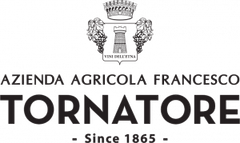
Out of a Sicilian family heritage that traces back to the 17th century, the Tornatore’s Mount Etna wine ventures began in 1865. Today the family’s operations are headed by Giuseppe Tornatore, a businessman whose expertise led to the acquisition of some of the region’s finest north-facing vineyards in the early 2000’s. That heritage and the Tornatore’s profound respect and understanding of the land is showcased in wines that capture the essence of Etna, deftly balancing concentrated flavors, complexity, freshness and refinement.
The company lies in the northern side of Mount Etna, the highest active volcano in Europe. The soils have volcanic origin and were created through the disintegration of lava, ash and stones from previous volcanic eruptions. The climate on the northern side of the Etna is characterized by mild temperatures, and more rain fall reflecting the influence of the Volcano. The combination of soil, climate and the skill of the winemakers, have made the northern slope of Etna an ideal area for the production of high-quality wines. “Our vineyards and our winery are only a few kilometers from our family home. Our entire family is rooted there. We have the greatest respect for this region, and we believe we have a responsibility to be stewards of Etna and to reflect its distinct character in our wines.” - Giuseppe Tornatore
Press Reviews
Wine Align
91 points - David Lawrason
This is a textbook Etna red from a relatively new, large and important producer. It is a pale and light bodied red that perfectly transmits the red strawberry/pomegranate/cranberry fruit of the nerello mascalese grape and region along with herbals, vague pepper and flinty minerality. It is medium weight, firm and very well balanced with some internal warmth and energy, then a dry, mineral finish. The length is very good to excellent. Chill lightly, serve over the next five years. Tasted May 2025
90 points - Michael Godel
Were September of 2024 not the most ideal time to experience the sheer beauty of this classically styled and modernized Etna Rosso - Well, May of 2025 is really that. moment. Get at it now, without hesitation, preferably alongside anything that involves Sicilian eggplant in one of it it many local preparations. Last tasted May 2025.
The most understandable and straightforward Etna Rosso there could be, mature and layered, of riches and earth, fruit and soil all in the mix. A volcanic paint by numbers canvas of realism and beauty, easily accessible and generous to a perfectly reasonable degree. Entry point for the DOC and once in, never to look back. Drink 2024-2026. Tasted May and September 2024.
89 points - Sara d'Amato
Pours a pale, luminous hue, this Etna-born red offers notes of dried leaf, gentle earth, white pepper, bramble, and notable brininess. A swell of warmth is noted on the palate. Its delicate red fruited character is contrasted by twiggy flavours and marked tannins. Very good length. Tasted May 2025.
- Red Wine
- Barbera
- Sustainable, Vegan-Friendly
- Dry
- Medium Bodied
- 750ml
- 14% alc./vol
About the Winery
Cascina Castlèt
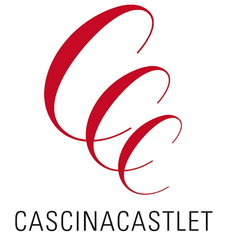 Cascina Castlèt has belonged to the Borio family for generations; Mariuccia, the current owner, inherited it from her father in 1970. Mariuccia focuses on her terroir and the local varieties. The vineyards of the estate are spread over 31 hectares, and are all located in Costigliole d'Asti.
Cascina Castlèt has belonged to the Borio family for generations; Mariuccia, the current owner, inherited it from her father in 1970. Mariuccia focuses on her terroir and the local varieties. The vineyards of the estate are spread over 31 hectares, and are all located in Costigliole d'Asti.
Press Reviews
James Suckling
91 points
Very nice blueberry and blackberry character with some spicy orange. Medium body. Fruity and tart. Drink now.
- White Wine
- Albarín
- Sustainable, Vegan-Friendly
- Dry
- Medium Bodied
- 750ml
- 13% alc./vol
About the Winery
Bodegas y Viñedos Pardevalles
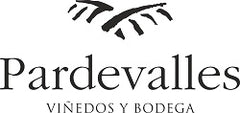 Pardevalles is recognized for being one of the driving forces behind the D.O Tierra de León, betting on the development of the indigenous grape varieties Prieto Picudo and Albarín Blanco. In 1949 Rafael Alonso founded Pardevalles continuing with the family tradition of growing grapes and making wine. The winemaking tradition in León goes back more than 400 years, famous for its centuries-old caves where wine was originally made.
Pardevalles is recognized for being one of the driving forces behind the D.O Tierra de León, betting on the development of the indigenous grape varieties Prieto Picudo and Albarín Blanco. In 1949 Rafael Alonso founded Pardevalles continuing with the family tradition of growing grapes and making wine. The winemaking tradition in León goes back more than 400 years, famous for its centuries-old caves where wine was originally made.The vineyards of Pardevalles are located between 750 and 820 metres above sea level, in an area with a Continental climate. They grow in poor, rocky alluvial soils which helps maintain the freshness in the wines. The philosophy of the Estate is grounded in making wines which express the character and identity of their origin, with a deep respect for the earth and the indigenous varieties of grape, combining tradition, innovation, and hard work.
Press Reviews
Decanter
92 points - World Wine Awards
- Red Wine
- Sangiovese
- Sustainable
- Dry
- Medium Bodied
- 750ml
- 14% alc./vol
About the Winery
Cortonesi

“I’m a lucky man who has been given the opportunity to realize my dream and continue my family’s efforts making wine in the land where I was born.” – Tommaso Cortonesi
Tommaso is third-generation winemaker at Cortonesi that owns some of the most prized vineyards in the north and south-east of Montalcino. Favourable geography, rocky soils, and ingenious winemaking all come together to create some of the region's deepest and most elegant Brunello wines.
The Cortonesi family has been making wine since the 1970s. At first, wines were made to be enjoyed by family, friends and neighbours, but then in 1985, Cortonesi had gained enough traction within their community that they began to offer their wines commercially. Today, Cortonesi remains a family business that continues to work according to tradition, while employing modern technologies to the enhance the quality of their production.
Lovers of Sangiovese must experience “La Mannella”, a collection of wines exclusively sourced from Cortonesi's private vine land. This farm covers 56 hectares, eight of which are devoted to the production of some of the world's most coveted and age-worthy Brunello di Montalcino.
Press Reviews
Wine Align
93 points - Michael Godel
Just bottled one week ago and hello to a '23 that Tommaso Cortonesi says is "very close to the Rosso di Montalcino style that I want for my winery." Tommaso has been working and honing his concept of Rosso for more than a decade and this first look at its next iteration seems somewhat of an aggressive one. That is the idea and Cortonesi admits how others who faced major 2023 challenges were jealous of the quality and quantity of La Mannella's harvest. Palate intensity is off the charts, there is a spicy element happening and structure is tops for Rosso. There are Brunello makers who would kill for this combination of substance and style. Drink 2026-2031. Tasted February 2025.
- White Wine
- Chardonnay
- Sustainable, Vegan-Friendly
- Dry
- Medium Bodied
- 750ml
- 12.5% alc./vol
About the Winery
Domaine de Mauperthuis

A family estate created by Marie-Noëlle & Laurent Ternynck, Domaine de Mauperthuis is located in Prehy, near the town of Chablis. Their wines express the terroir of this amazing region and the vineyards are currently undergoing the transition to organic. Domaine de Mauperthuis covers around twenty hectares of vineyards around Chablis. The estate, in the Burgundy appellation, is planted in Chardonnay, Pinot Noir, Sauvignon and César, on land facing south, benefiting from exceptional sunshine.
Press Reviews
Wine Align
91 points (2020) - David Lawrason
This is a quite rich, slightly oxidative style of unoaked chardonnay with pale golden colour and a ripe nose of baked apple. Peach pie, toasty lees and vague nuttiness. It is medium weight, smooth and almost creamy with fine acidity and mineral underpinning. The length is excellent. Tasted June 2022
- Red Wine
- Bobal
- Sustainable, Vegan-Friendly
- Dry
- Medium Bodied
- 750ml
- 14% alc./vol
About the Winery
Agrícolas de Vinos La Higuera
Agrícola de Vinos La Higuera is a small project founded in 2017 by two friends, Javier del Blanco and Jorge Navascues, to join their knowledge in the wine industry while working separately with top Estates from different regions all over Spain.
The aim is to nurture and craft honest wines that will honor their origins, with great value and genuine quality, expressing the purity of the grape variety and the environment they are grown in.
Press Reviews
WineAlign
90 points (2020) - Michael Godel
A varietal bobal from Utiel-Requena where 34,000 hectares in Valencia between the two neighbouring towns of Utiel and Requena are mostly concerned with this unique variety. Here is a firm and medium-bodied example with a plenary meeting of root-earthy fruit and exemplary acidity. Not exactly tannic but structured in its own parochial way to live non-plussed for a few years. This is quite a youthful example with more getable juiciness than many. Drink 2023-2025. Tasted February 2023.
90 points (2020)- Sarah d'Amato
A fruity, juicy red smartly packaged with a modern-utilitarian label from the Valencian sub-appellation of Utiel Requena where the bobal variety dominates in both red and rosé forms. Mid-weight, supple and easy-drinking with white pepper spice, and bramble along with wafting notes of botanicals and mint. Lightly reduced in a very pleasant fashion. Would benefit from a slight chill. Engaging and convivial with plenty of food pairing potential. Ready to drink. Tasted February 2023.
90 points (2020) - Megha Jandhyala
This 100% bobal was sourced from a single vineyard called La Pinada planted in 1958 in the Valencian sub-appellation of Utiel-Requena. It has a sense of freshness, candour, and authenticity that is appealing. I like the ripe red fruit flavours including plump and juicy strawberries, raspberries, and cherries, accompanied by notes of savoury herbs and earthy tones. The palate is medium-bodied and fresh, with juicy acids and fine tannins, while alcohol is well-integrated (13.5%, per the label). Ready to drink, this bobal is best enjoyed lightly chilled. Tasted February 2023 by Critic Understudy Megha Jandhyala.
- Red Wine
- Merlot
- Natural, Sustainable, Vegan-Friendly
- Dry
- Medium Bodied
- 750ml
About the Winery
Grains d'Estuaire
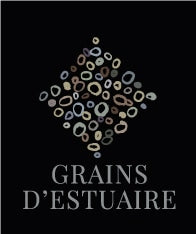
Julien Bonneau, (Château Haut Grelot in the Blayais), and his friend Alexandre Lavigne, restaurateur in Saint-Palais-sur-Mer, created in 2014 a range of wines, Grains d'Estuaire, from 'a 10 ha vineyard located in Saint-Bonnet-sur-Gironde, in the south of Charente-Maritime.
- Rosé Wine
- Prieto Picudo
- Sustainable, Vegan-Friendly
- Dry
- Medium Bodied
- 750ml
- 13.5% alc./vol
About the Winery
Bodegas y Viñedos Pardevalles
 Pardevalles is recognized for being one of the driving forces behind the D.O Tierra de León, betting on the development of the indigenous grape varieties Prieto Picudo and Albarín Blanco. In 1949 Rafael Alonso founded Pardevalles continuing with the family tradition of growing grapes and making wine. The winemaking tradition in León goes back more than 400 years, famous for its centuries-old caves where wine was originally made.
Pardevalles is recognized for being one of the driving forces behind the D.O Tierra de León, betting on the development of the indigenous grape varieties Prieto Picudo and Albarín Blanco. In 1949 Rafael Alonso founded Pardevalles continuing with the family tradition of growing grapes and making wine. The winemaking tradition in León goes back more than 400 years, famous for its centuries-old caves where wine was originally made.The vineyards of Pardevalles are located between 750 and 820 metres above sea level, in an area with a Continental climate. They grow in poor, rocky alluvial soils which helps maintain the freshness in the wines. The philosophy of the Estate is grounded in making wines which express the character and identity of their origin, with a deep respect for the earth and the indigenous varieties of grape, combining tradition, innovation, and hard work.
Press Reviews
WineAlign
90 points - Sara d'Amato
Pours a luminous, deep pink, this rosada from Leon is made entirely of the indigenous prieto picudo grape, more typically a blending variety with dark skins and often resulting in wines with licorice-tinged black and red fruit. With youthful exuberance and potency, this salty and succulent expression features a wealth of lightly candied red berries, slippery tannins and a touch of welcome bitterness that contributes balance and a sensation of freshness. Best to enjoy in its youthful condition but it has the concentration for another year or two of aging. Tasted February 2024.
- Red Wine
- Graciano, Grenache, Tempranillo
- Sustainable
- Dry
- Medium Bodied
- 750ml
- 14.5% alc./vol
About the Winery
Bodegas Exopto
Exopto is Latin for “to long for” or “to desire greatly” and it is the dream of Frenchman Tom Puyaubert and his family to endeavor to craft and assemble wines where the whole adds up to more than the sum of their parts. Tom relocated from France to Rioja in 2000 after falling in love with the region and working for the French cooperage Saury as its Spain representative.
When Tom began Exopto, he wanted to do a project that produced wines within this historical context of Rioja - combining both worlds in a unique way. His idea is to remain true to the blending of the principle grape varieties and to do so from the best terroirs/villages for those varieties crossing sub-regions of Rioja. Each wine though, has a majority of a different principle grape – showcasing that variety specifically within the context of a blend. The viticulture and winemaking model is that of the “vigneron” days – small plots of vines in the extremes, wild yeast fermentation in concrete or old oak vats and then aging in a way to showcase the fruit, minerality and terroir not the wood or aged flavours that people often associate with Rioja.
Press Reviews
Wine Align
91 points (2021) - John Szabo
A blend of garnacha, tempranillo and graciano grown at around 500m in the Sierra de Cantabria, this is aged exclusively in concrete and thus a long way from what many would consider the 'traditional' style of Rioja. I like the freshness and vibrancy allied at the same time to ripe, plush fruit spanning both the red and black spectrum. Tannins are supple and acids balanced and creamy, leading into a long, gently saline finish. Concentration and depth, as well as complexity overall, far exceed expectations in the category. Well made wine from an evidently superior vineyard, delicious now, or hold 3-4 years. Tasted January 2024.
91 points (2021) - Megha Jandhyala
This is a charming Rioja, a blend of garnacha, tempranillo, and a small amount of graciano. I like the bright, supple red fruit here and the pretty floral and savoury herbal notes. The palate is lively and supple, with fine-grained tannins and juicy acids. Fresh, streamlined, and with a sense of lightness that is appealing, this wine is ready to drink, though it can also be cellared for a couple of years. Tasted January 2024.
- White Wine
- Garnacha Blanca
- Natural, Sustainable, Vegan-Friendly
- Dry
- Medium Bodied
- 750ml
- 14.2% alc./vol
About the Winery
Bodegas Puiggros

Since 1843, the Puiggros family has been producing wines from their own vines in the Odena region of Catalunya for the family and close friends. Over generations they had come to realize that their vineyards and techniques were something worth sharing with the world. A sincere dedication to the terroir in their zone and the indigenous varieties that grow there, allows them to constantly discover ways to unlock all of the magic that lies within their land.
Starting with conscious and clean farming in the vineyard, they hand-harvest only the best fruit for their production, and ferment each vineyard separately in varying vessels to accentuate what the vines have to show; some in stainless steel, and many in clay amphora of differing sizes. All the while seeing very little sulfur use (if any) until bottling. Puiggros is pushing the quality of northeastern Spain's wines forward, and doing so in a clean and unique way.
Bodegas Puiggròs
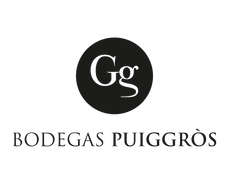
Since 1843, the Puiggros family has been producing wines from their own vines in the Odena region of Catalunya for the family and close friends. Over generations they had come to realize that their vineyards and techniques were something worth sharing with the world. A sincere dedication to the terroir in their zone and the indigenous varieties that grow there, allows them to constantly discover ways to unlock all of the magic that lies within their land.
Starting with conscious and clean farming in the vineyard, they hand-harvest only the best fruit for their production, and ferment each vineyard separately in varying vessels to accentuate what the vines have to show; some in stainless steel, and many in clay amphora of differing sizes. All the while seeing very little sulfur use (if any) until bottling. Puiggros is pushing the quality of northeastern Spain's wines forward, and doing so in a clean and unique way.
Press Reviews
Wine Align
91 points (2020) - Michael Godel
In Catalunya and other parts of Spain’s north-central appellations there has been a decade-long investigation into grenache raised in amphora with Bodegas Puiggròs making some of the cleanest of the bunch. This family’s work dates back nearly 180 years though in bottling just more than a dozen. Their Catalonian garnatxa blanca grown at 600m on limestone and clay sees time in 800L clay amphora. The freshness and oily texture combine for honest to goodness pleasure with lemon, orange, lime and dried herbs all in the mix. Almost lemongrass and kefir but certainly some notes of exoticism within. Good energy here and worth a look, finishing with tell-tale tisane and tonic. Drink 2022-2025. Tasted September 2022.
91 points (2020) - John Szabo, MS
Amphora-aged garnacha blanca from Catalonia, Puiggros's 2020 Exedra is a fine follow up to the excellent 2019, clean, fresher than most in the clay pot-aged genre. I like the gentle white-fleshed orchard fruit flavours, the lemon curd and cream, the fullish, well-rounded palate, the impressive length. It's not easy to render this style so cleanly and precisely, but Puiggros does it so well. I'd consider ageing it another year or two for full complexity, though it's also admittedly delicious now. Tasted September 2022.
89 points (2020) - David Lawrason
This is 100% grenache blanc - the favoured white grape of northeast Spain. It shows bright fairly deep lemon colour. The nose is generous but gentle with ripe yellow melon/pear fruit, acacia florality, a hint of anise and spice. It is medium-full bodied, just off-dry and sour-edged with a hint of acetic, which lowers my rating below 90. Still, it is enjoyable, quite plush, open knit and intensely flavoured with excellent length. Tasted Sept 2022
- País
- Sustainable
- Dry
- Medium Bodied
- 750ml
- 13% alc./vol
About the Winery
Garage Wine Co.

Garage Wine was literally started in a garage in 2001, by Etobicoke expat Derek Mossman and his wife Pilar Miranda. Since then, the dynamic duo handcraft wines from a series of individual vineyards located in the Maule and Itata Valleys, in the south of Santiago, Chile.
Garage Wine Co makes wines from a series of individual parcels, small lots / bottlings of 8-22 barrels that include a series of dry-farmed field-blends of Carignan, Garnacha, Monastrell, País, Cinsault and Cab Franc grown on pre-phylloxera rootstock with small farmers in the Maule and Itata. Each wine is from a 1-2 hectare parcel in a different place.
Over the years working in the community they have raised a veritable posse of vineyard hands whose skills are working the vineyards the old way / the traditional way– originario. The vineyards are on the old coastal range of mountains closer to the Pacific and have granitic soils with cracks for roots to get deep down into.
When GWCo. speaks of the provenance of these wines they mean more than just the geological terroir. Derek and Pilar think the farming practices that have evolved over generations have as much to do with the wines’ personalities as the soils. All the wines are made by hand with native yeasts in small tanks, punched down manually and pressed out in a small basket press. GWCo is still very much a DIY operation and we still tow much of the crop back to the winery in trailers behind trusty pickup trucks 2,000 kilos at a time.
Press Reviews
WineAlign
91 points (2021) - Michael Godel
The 2018 país was, and I quote Garage Wine Company founder (and Oakvillean) Derek Mossman Knapp ”A wine that rose from the 2017 bush fires, quickly having ascended out of the ashes as something resurrected and reinvented.” The method is pressing whole clusters with stems and a co-fermented (2018) collection of país, stacked with carinena, one on top of the other. Now in 2021 it’s all about the mission grape, survivor and revivalist, the stacks of fruit like lyrics, on repeat. If you say the mantra often enough it becomes bible and this grape made in this way is the lifeblood and soul of Chile’s Secano Interior Cauquenes. A very instrumental red wine, comfortable, of relaxed warmth and lack of pressure that you would only expect at home, with people you love. “People can you feel it? Love is everywhere.” Drink 2023-2026. Tasted February 2023.
90 points (2021) - Megha Jandhyala
Born during the pandemic, the Garage Wine Company’s old-vine project is devoted to reviving previously-neglected old vines and supporting local farming communities. Founded by Mossman Knapp and Pilar Miranda, it is based in Maule, home to many dry-farmed, family-owned, old vineyards. Only about 5000 bottles of this old-vine país were made using traditional methods, including traditional dry-farming and hand-harvesting in the vineyards, and manual punchdowns and native yeast in the winery. It is a fresh, light, cheerfully fruity, wine, clean and uncluttered, with a down-to-earth, guileless charm. Red berries and herbs are joined by notes of pepper and wildflowers. The palate is medium-bodied and soft, with fine tannins, tart acids, and very good length.
- White Wine
- Chardonnay
- Sustainable, Vegan-Friendly
- Dry
- Residual Sugar: 2 g/l
- Medium Bodied
- 750ml
- 13.00% alc./vol
About the Winery
Domaine Baud Père et Fils

The history of Domaine Baud dates back to 1742, and it wasn't until 1950 when René Baud, the 7th generation, rebuilt the vineyard which had suffered from the phylloxera crisis and two World Wars.
Starting with only 4 hectares, the vineyard progressively expanded to 20 hectares with the help of successive generations. Now, managed by siblings Clémentine and Bastien, the 9th generation, the estate continues to flourish and grow, with a strong commitment to sustainable viticulture and preserving the traditions and style that makes the wines of the Jura so unique and incredible.
The estate achieved the Terra Vitis certification in 2014 for its eco-friendly work and environmental preservation.
Press Reviews
Wine Anorak
94 points - Jamie Goode
Powerful, lively and spicy with concentrated tangy citrus and pear fruit with some saline notes and tangy apple and lemon on the finish. Lovely intensity here with some crystalline citrus fruit.
Wine Align
93 points - David Lawrason
This is not your everyday chardonnay! In the Jura region of east-central France in the lower foothills of the Alps, there is tradition of oxidative winemaking, some under a layer of flor, as occurs in some Spanish sherry. As a result of the advance maturation this pours medium gold. The nose is dominated by classic hazelnut, honey, barley sugar sourdough and anise, around the ripe tropical fruit. It is medium weight, very smooth, well balanced and focused, with excellent length. More lithe lemon notes enliven the finish. There is a touch of tannin. Tasted December 2022.
91 points - John Szabo, MS
A pure chardonnay made in the traditional, oxidative Jura style under flor, not unlike fino sherry, but here the oxidation is more pronounced. Expect bruised apple and cold Orange Pekoe tea, cold wheat toast with honey, lemon pith and zest, and much more in an unusual but complex expression. The palate is mid-weight, showing more fruit and less oxidative qualities than the nose, succulent acids, and good to very good length. I must say, I like the salinity and savoury aspects, the lingering flavours and authentic but unimpeachable winemaking. There's fantasy here; be sure to decant before serving; best now-2026. Tasted December 2022.
91 points - Michael Godel
Clémentine Baud took over the family estate with her brother six years ago. The first father to daughter transition and with many to follow. The estate dates back to 1742, started by Jean-François. They farm 25 hectares, Clémentine’s father started with five and grew to 19 hectares when he retired. Picking for Sparkling now seems to happen in August, save for the difficult 2021 vintage. In 2017 70 per cent of the harvest was lost to the frosts, 50 in 2019 and 80 in 2021. "We have over 40 old varieties in the Jura, important for diversity, including those not allowed under the rules of the AOC," tells Clém. The fruit for Cuvée Flor is grown at a latitude of 46.73 North and though very much a cool climate place for chardonnay the threats of warmer winters and seasonal frosts has wreaked havoc over the past 10 years. A chardonnay of remarkable lustre, concentration and purity, worked by way of oxidative aging, low alcohol expectation starting at 12 and finishing no higher than 14 to 14.5. A floral chardonnay, not one related to yeast and surely a pretty in Jura wine. From the younger vines, phenolic and hinting towards though remaining clear of emerging boozy. Filled with flavour, hazelnut and praline, peach and yellow plum. A world of its own. Drink 2022-2025. Tasted July 2022.
- Red Wine
- Pinot Noir, Trousseau
- Sustainable, Vegan-Friendly
- Dry
- Residual Sugar: 2 g/l
- Medium Bodied
- 750ml
- 13.00% alc./vol
About the Winery
Domaine Baud Père et Fils

The history of Domaine Baud dates back to 1742, and it wasn't until 1950 when René Baud, the 7th generation, rebuilt the vineyard which had suffered from the phylloxera crisis and two World Wars.
Starting with only 4 hectares, the vineyard progressively expanded to 20 hectares with the help of successive generations. Now, managed by siblings Clémentine and Bastien, the 9th generation, the estate continues to flourish and grow, with a strong commitment to sustainable viticulture and preserving the traditions and style that makes the wines of the Jura so unique and incredible.
The estate achieved the Terra Vitis certification in 2014 for its eco-friendly work and environmental preservation.
- White Wine
- Sauvignon Blanc
- Natural, Sustainable, Vegan-Friendly
- Dry
- Medium Bodied
- 750ml
About the Winery
Grains d'Estuaire

Julien Bonneau, (Château Haut Grelot in the Blayais), and his friend Alexandre Lavigne, restaurateur in Saint-Palais-sur-Mer, created in 2014 a range of wines, Grains d'Estuaire, from 'a 10 ha vineyard located in Saint-Bonnet-sur-Gironde, in the south of Charente-Maritime.
- White Wine
- Chardonnay
- Sustainable, Vegan-Friendly
- Dry
- Medium Bodied
- 750ml
- 13% alc./vol
About the Winery
The Farm

“The Farm” is a 10-acre vineyard in Niagara’s Twenty Mile Bench, planted to Pinot Noir. The Neudorf vineyard was originally planted with Pinot Noir in 2000 for Le Clos Jordanne and aptly named “La Petite Colline”, meaning “little hill”, a nod to the gentle slopes that permeate the plot.
The property is rooted in traditions of gathering family & friends, and where Peter and Dora Neudorf call home .
The cellar door opens once a year for guests to taste new releases, and enjoy live music and local food.





























